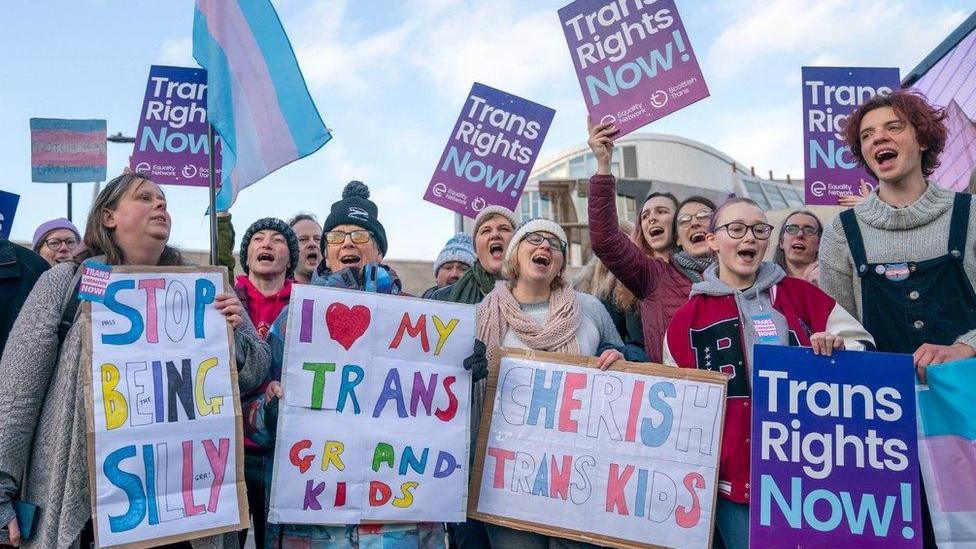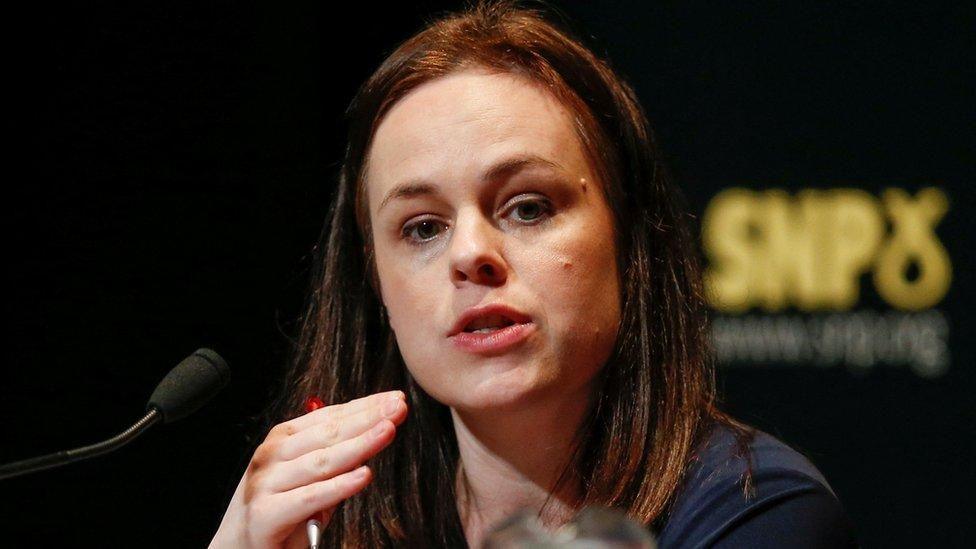Swinney remains committed to gender reform bill

- Published
The Scottish government has recommitted to legislation that will allow someone to self-identify their legally recognised sex.
The Gender Recognition Reform (Scotland) Bill was passed by the Scottish Parliament in December 2022 but the UK government blocked it from becoming law over fears it would impact on equality laws across Great Britain.
UK ministers used section 35 of the Scotland Act to veto the legislation.
Last year the Court of Session in Edinburgh rejected a Scottish government legal challenge to the veto.
Speaking to BBC Scotland News on Thursday, John Swinney declined to answer whether he would open up discussions with any future Labour government on the Gender Recognition Reform Bill.
The first minister said he would "wait and see" what the political landscape was like.
Ministers will not challenge gender case legal costs
- Published22 January 2024
UK government seeks expenses from gender court case
- Published17 January 2024
Scottish government drops gender law court battle
- Published20 December 2023
But the Scottish government has now confirmed that its position remains that it wants to see the section 35 challenge lifted and for the legislation to take effect.
Deputy First Minister Kate Forbes, who was on maternity leave when the legislation was passed, previously said she had "significant concerns" about gender self-identification.
On Friday she told BBC Scotland News that she would "wholeheartedly endorse" the Scottish government position.
She said: "The first minister has been absolutely clear that the Scottish government intends to promote, to protect and to enhance the rights of every LGBT person in Scotland, and I wholeheartedly endorse that position."
Speaking after being sworn in at the Court of Session in Edinburgh, she added that the government was "united as one" in trying to achieve change for Scotland on a number of issues, including the cost of living and the squeeze on public services.
She stressed that she would abide by collective responsibility, meaning she backs all Scottish government policy.

Deputy First Minister Kate Forbes previously said she had "significant concerns" about gender self-identification
Representatives of Out for Independence, the official LGBTQ+ wing of the SNP, met Mr Swinney and the social justice secretary Shirley-Anne Somerville on Friday, and said they were given "specific reassurances" that the bill would be moved forward.
The group said there had been a "frank, honest, and open discussion" with the first minister.
They added they had also been reassured that the Scottish government will move forward with legislation to end conversion therapy - "and that it will remain trans inclusive".
Labour have indicated that they would not repeal the section 35 order if they formed the next UK government.
A Scottish government spokesperson said: “The GRR Bill was passed by the Scottish Parliament. If the UK government lifted its legal block – the section 35 order - it would become law.
“The problem is that the current UK government has said they will not.
“The Scottish government’s position is simple - UK government should lift their section 35 order.
“They have made clear however that they will not, and until they do, it is simply not legal to implement the legislation.”
Scottish Conservative deputy leader Meghan Gallacher said: “Women’s groups, and the vast majority of Scots, will be dismayed to hear that John Swinney is doubling down on Nicola Sturgeon’s reckless gender self-ID policy.
“This is further proof that John Swinney spells more of the same, and is wedded to the same failed and flawed approach as Nicola Sturgeon and Humza Yousaf."